The FMCG industry is packed with some of the world’s most influential companies. From beverages and snacks to personal care and household essentials, these brands have become household names. Here’s a comprehensive look at the top 10 FMCG companies leading the pack.
Top FMCG Companies by Key Brands, Focus Areas, Annual Revenue
1. Nestlé: The Global Leader in Nutrition and Wellness

Nestlé stands at the top, generating over $100 billion annually. The company has a global presence, with products sold in 190 countries and an extensive portfolio that includes Nescafé, KitKat, and Purina. Nestlé focuses on health and sustainability, making significant strides in plant-based nutrition and eco-friendly practices.
Key Facts:
- Revenue: Over $100 billion
- Focus Areas: Nutrition, plant-based foods, sustainable sourcing
- Big Moves: Investing in regenerative agriculture and water conservation
Highlight: Nestlé has committed to achieving net-zero emissions by 2050.
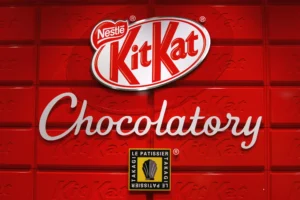
2. Procter & Gamble (P&G): Master of Consumer Insights
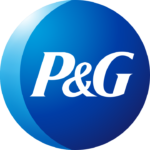
Procter & Gamble, with revenues around $80 billion, is a powerhouse in personal and home care. Famous for brands like Tide, Gillette, and Pampers, P&G excels in consumer analytics and data-driven marketing, setting trends in product innovation and environmental responsibility.
Key Facts:
- Revenue: $80 billion
- Notable Brands: Tide, Gillette, Olay, Pampers
- Sustainability Goals: 100% recyclable or reusable packaging by 2030
Highlight: P&G’s #LikeAGirl campaign became a viral sensation, redefining gender stereotypes.
3. Unilever: A Purpose-Driven FMCG Giant
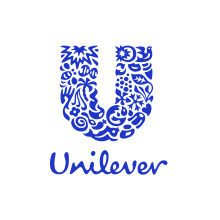
Unilever earns about $60 billion annually and operates across beauty, home care, and food. Known for purpose-led brands like Dove and Ben & Jerry’s, Unilever is committed to sustainability and ethical business practices, focusing on reducing its carbon footprint and promoting social justice.
Key Facts:
- Revenue: $60 billion
- Core Brands: Dove, Lipton, Hellmann’s, Magnum
- Digital Transformation: Heavily investing in e-commerce and AI for consumer insights
Highlight: Unilever is a leader in sustainable sourcing, with 100% of its palm oil sourced responsibly.
4. PepsiCo: Snacks and Sustainability in Perfect Balance

PepsiCo’s $85 billion revenue comes from its diversified portfolio, spanning from beverages like Pepsi to snacks such as Lay’s and Doritos. PepsiCo’s focus on sustainability includes reducing greenhouse gas emissions and regenerative agriculture practices.
Key Facts:
- Revenue: $85 billion
- Popular Brands: Pepsi, Lay’s, Quaker, Gatorade
- Sustainability Efforts: Achieving carbon neutrality by 2040
Highlight: PepsiCo’s “Drinkfinity” brand focuses on sustainability with reusable water bottles.
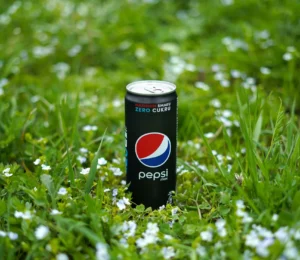
5. The Coca-Cola Company: More Than Just Soda

The Coca-Cola Company earns about $45 billion annually, with more than 500 brands under its umbrella. While Coca-Cola is best known for its fizzy drinks, the company has expanded into healthier beverage options and brand diversification.
Key Facts:
- Revenue: $45 billion
- Brand Portfolio: Coca-Cola, Fanta, Dasani, Costa Coffee
- Health Initiatives: Reducing sugar in beverages and expanding zero-sugar lines
Highlight: The iconic “Share a Coke” campaign is one of the most memorable in marketing history.
6. L’Oréal: Beauty Meets Technology
![]()
L’Oréal is the world’s largest beauty company, generating nearly $40 billion annually. From makeup to skincare, the company uses advanced technology like AI and AR to personalize beauty experiences and improve customer engagement.
Key Facts:
- Revenue: $40 billion
- Top Brands: Maybelline, Lancôme, Garnier, Kiehl’s
- Tech Innovations: Virtual makeup try-ons with ModiFace
Highlight: L’Oréal is moving toward 100% recycled or bio-based packaging by 2030.
7. Johnson & Johnson: Health and Wellness Leader
![]()
Johnson & Johnson is a global leader in healthcare and personal care, with revenues of over $90 billion. Known for Band-Aid, Neutrogena, and Johnson’s Baby, the company excels in pharmaceuticals, medical devices, and consumer health products.
Key Facts:
- Revenue: $90 billion
- Iconic Brands: Band-Aid, Listerine, Aveeno, Tylenol
- Sustainability: Commitment to reducing carbon emissions by 80% by 2030
Highlight: J&J’s COVID-19 vaccine development showcased its global impact on healthcare.
8. Colgate-Palmolive: The Smile Experts

Colgate-Palmolive, with annual revenue of about $18 billion, is synonymous with oral care but also excels in pet nutrition and household products. The company invests in eco-friendly initiatives, such as recyclable toothpaste tubes.
Key Facts:
- Revenue: $18 billion
- Best-Known Brands: Colgate, Palmolive, Hill’s Pet Nutrition
- Environmental Impact: Reducing plastic usage and water consumption in manufacturing
Highlight: Colgate’s new toothpaste tubes are 100% recyclable, setting a new standard in oral care packaging.
9. Reckitt Benckiser: Hygiene and Home Care Innovators

Reckitt Benckiser, earning around $14 billion annually, owns well-known brands like Lysol, Dettol, and Durex. The company focuses heavily on hygiene and health products, making a significant impact during the COVID-19 pandemic with disinfectant solutions.
Key Facts:
- Revenue: $14 billion
- Leading Brands: Lysol, Dettol, Nurofen, Durex
- Health Initiatives: Investment in public health awareness campaigns
Highlight: During the pandemic, Lysol became a top choice for disinfection, boosting the company’s market presence.
10. Kraft Heinz: The Food Industry Powerhouse

Kraft Heinz, with about $26 billion in revenue, is a global food and beverage leader. Known for Heinz ketchup and Kraft mac & cheese, the company is modernizing its offerings to include healthier and organic products.
Key Facts:
- Revenue: $26 billion
- Flagship Brands: Heinz, Kraft, Oscar Mayer, Philadelphia
- Sustainability Efforts: Reducing food waste and prioritizing ethical sourcing
Highlight: Kraft Heinz has launched plant-based ketchup and is investing in alternative protein sources.
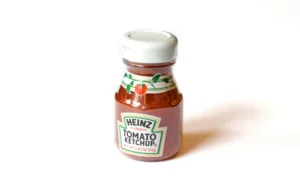
Emerging Trends in the FMCG Sector
- Eco-Friendly Packaging: Companies are racing to reduce plastic waste, using recyclable and biodegradable materials.
- Health and Wellness Boom: FMCG brands are cutting down sugar and offering nutritious alternatives.
- E-commerce Dominance: Direct-to-consumer platforms are becoming crucial as more consumers shop online.
- Smart Technology: AI and data analytics are revolutionizing how companies understand and engage with consumers.
- Plant-Based Revolution: From meat substitutes to dairy-free products, plant-based is here to stay.
Table of Top 10 FMCG Companies by Revenue
| Company | Annual Revenue (Approx.) | Focus Areas | Key Brands |
|---|---|---|---|
| Nestlé | $100+ Billion | Nutrition, sustainability, pet care | Nescafé, KitKat, Purina |
| Procter & Gamble | $80 Billion | Personal care, household products | Tide, Gillette, Pampers |
| Unilever | $60 Billion | Beauty, home care, sustainable food | Dove, Lipton, Ben & Jerry’s |
| PepsiCo | $85 Billion | Snacks, beverages, health initiatives | Pepsi, Frito-Lay, Quaker |
| The Coca-Cola Company | $45 Billion | Beverages, brand diversification | Coca-Cola, Dasani, Sprite |
| L’Oréal | $40 Billion | Beauty, tech innovation, eco-friendly | Maybelline, Garnier, Lancôme |
| Johnson & Johnson | $90 Billion | Healthcare, personal care | Band-Aid, Listerine, Tylenol |
| Colgate-Palmolive | $18 Billion | Oral care, pet nutrition, eco-friendly | Colgate, Palmolive, Hill’s |
| Reckitt Benckiser | $14 Billion | Hygiene, home care, health | Lysol, Dettol, Durex |
| Kraft Heinz | $26 Billion | Food, beverages, sustainable packaging | Heinz, Kraft, Oscar Mayer |
These companies continue to shape our world, adapting to trends and setting new standards for innovation and sustainability. Do you have a favorite FMCG company, or are you curious about any specific brand strategy? Let me know!

